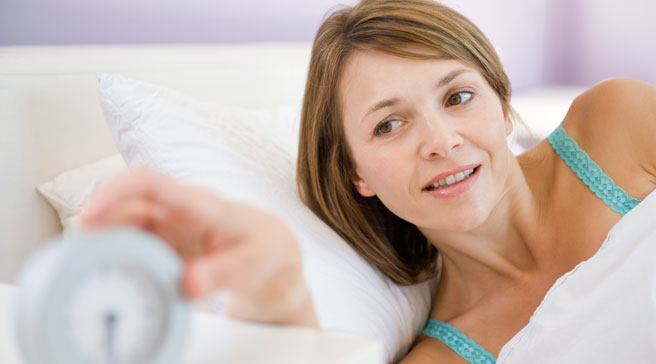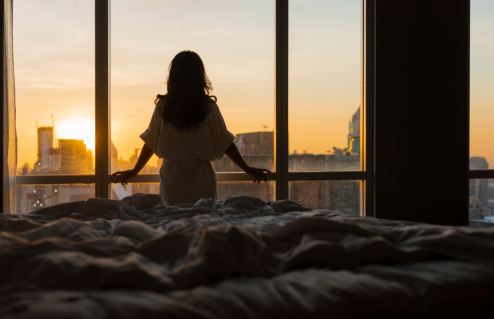Working with your body clock
Each organ in our body has a time when it is at its peak and, conversely, when it is at its weakest. Sarah Merson finds out what we should be doing when

3am–5am: Do t’ai chi
According to Chinese Medicine, this is when the lungs are at their most active, so even though it may seem unnaturally early, it’s a good time to get up and even do some exercise. ‘The Chinese have always done this,’ says acupuncturist Paul Blacker from The College Of Naturopathic Medicine. ‘Many of them practise t’ai chi, which focuses on the breath/lungs, in the early morning.’
4am–6am: Best time for birth
You are most likely to give birth naturally between 4am and 6am, says chronobiologist Russell Foster. According to the Chinese body clock, this is because there is relatively more energy in the lungs, compared with other organs. ‘As we enter into the world, we inhale and take our first breath of life. It’s fitting that the best time of day to enter the world is when there is most energy in the lungs to help aid that first breath,’ says Blacker.
5am–6am: Best time for sex
Early morning, when the sun rises, is also the best time to have sex. According to a study in the British Medical Journal, sunlight boosts testosterone, a hormone that increases sexual desire in both men and women. And a study from the Centre for Chronobiology, Novosibirsk, Russia, stated that ‘exposure to light stimulates the hypothalamus [the part of the brain that links the nervous system to the endocrine system], thereby influencing the level of almost every hormone in the body, which boosts fertility.’
7am–11am: Healthy breakfast
The stomach and pancreas are at their most active in the morning, which is why the pioneering nutritionist Adelle Davis advised: ‘Eat breakfast like a king, lunch like a prince, and dinner like a pauper’. Overnight, the liver has been detoxing, our tissues and cells have been repairing themselves and breakfast is the body’s opportunity to re-energise. A study at King’s College London, showed that a good breakfast can increase alertness in the morning and enhance memory and concentration levels throughout the day.
9am–11am: Time to work
Many people find it’s easier to concentrate in the morning. ‘This is because the yi, or our ability to think, is governed by the spleen, which has most energy between 9am and 11am, making this the best time to focus on work,’ says Blacker.
1pm–3pm: Afternoon siesta
It’s not a luxury that many of us can afford, but a siesta after lunch can be beneficial. When there’s food in our intestines, energy is diverted away from our extremities (such as the head, arms and legs) to aid digestion and thereby get more energy from our food. As a result, concentration levels start to dip and we feel a bit sleepy. ‘In Chinese medicine, 1pm to 3pm is the time of the small intestine, which is why we often feel like having 40 winks after lunch,’ says Blacker.
7pm–9pm: Relaxation
In Chinese medicine this is the time of the pericardium, a fluid-filled sac that protects the heart. ‘One of the functions of the heart is that it houses our minds, and our minds should be relaxed to allow us to sleep,’ says Blacker. ‘As the pericardium protects the heart, the best way to promote a healthy night’s sleep is to relax during this time.’ As daylight fades, he explains, the pineal gland in the brain produces less serotonin, the neurotransmitter that controls appetite and our cardiovascular system. Once darkness falls, it stops releasing serotonin and begins producing melatonin, which helps us sleep.
Photograph: BananaStock








